Planning worship?
Check out our sister site, ZeteoSearch.org,
for 20+ additional resources related to your search.
- |
User Links
Person Results
‹ Return to hymnal
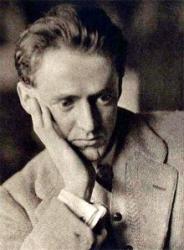
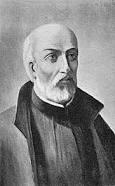
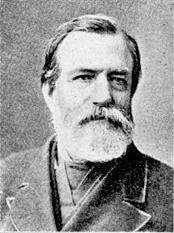
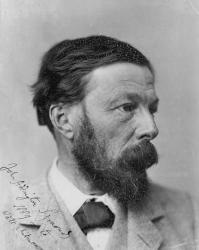
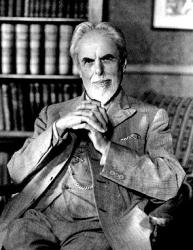
Export as CSV
Katharine Emily Roberts
1877 - 1962 Hymnal Number: d68 Author of "Now the joyful bells a-ringing" in Songs of Praise for Schools Katherine Emily (Clayton) Roberts was born in 1877 in Leicester, England. Her father, Rev. Lewis Clayton, later became Suffragan Bishop of Leicester and Assistant Bishop of Peterborough. Her mother, Katherine (Hare) Clayton was active in the woman's suffrage movement in England. Katherine Emily Clayton married Rev. Robert Edwin Roberts (1878 - 1940) on January 17, 1901 at Peterborough Cathedral. He was born in Wales (Llangernyw), served as a Master at the Choir School of Westminster Abbey, saw active duty in World War I as a chaplain, worked in a munitions factory, and became a Canon of the Church of England and Dean of Leicester Cathedral. He was reportedly a gifted baritone singer who often gave lecturers on Welsh, Irish and Scottish music. He compiled hymnals and composed the tune, PHILIPPINE, presumably named for his daughter, born in 1919.
Katherine and her husband wrote a history, "Peterborough," published in 1920 in the series "The Story of the English Towns." Katherine E. Roberts translated and freely paraphrased Welsh carols for The Oxford Book of Carols. Translations include "Dark the Night Lay" (No. 9) and "All Poor Men and Humble" (34). Paraphrases include "Awake Were They Only Those Shepherds So Lonely" (59) and "Now The Joyful Bells A-Ringing" (50), better known in its secular version as Deck The Halls. She wrote the baptism text "O Lord, Thy People Gathered Here," for her husband’s tune PHILIPPINE.
Chris Hoh, used by permission
Katharine Emily Roberts
Clifford Bax

1886 - 1962 Hymnal Number: d104 Author of "Turn back, O man, forswear thy foolish ways" in Songs of Praise for Schools Clifford Bax was a prolific English author and playwright. He was born in south London. He studied at The Slade and the Heatherly Art School but he gave up painting and worked on writing. He was a friend of Gustav Holst and he wrote the hymn "Turn back, O man, forswear thy foolish ways" during World War I, at the request of Holst who wanted a text for the motet he composed on the tune OLD 124th.
Dianne Shapiro, from Wikipedia, Find A Grave (www.findagrave.com) and "The Cambridge Dictionary of Hymnology" (https://hymnology.hymnsam.co.uk) accessed 1-30-2019
Clifford Bax
Jean de Brébeuf

1593 - 1649 Person Name: Jean de Brebeuf Hymnal Number: d105 Author of "Jesus your King is born" in Songs of Praise for Schools Jean de Brébeuf, Jesuit missionary, born at Condé-sur-Vire in Normandy, 25 March, 1593; died in Canada, near Georgian Bay, 16 March, 1649. His desire was to become a lay brother, but he finally entered the Society of Jesus as a scholastic, 8 November, 1617. According to Ragueneau it was 5 October. Though of unusual physical strength, his health gave way completely when he was twenty-eight, which interfered with his studies and permitted only what was strictly necessary, so that he never acquired any extensive theological knowledge. On 19 June, 1625, he arrived in Quebec, with the Recollect, Joseph de la Roche d' Aillon, and in spite of the threat which the Calvinist captain of the ship made to carry him back to France, he remained in the colony. He overcame the dislike of the colonists for Jesuits and secured a site for a residence on the St. Charles, the exact location of a former landing of Jacques Cartier. He immediately took up his abode in the Indian wigwams, and has left us an account of his five months' experience there in the dead of winter. In the spring he set out with the Indians on a journey to Lake Huron in a canoe, during the course of which his life was in constant danger. With him was Father de Noüe, and they established their first mission near Georgian Bay, at Ihonatiria, but after a short time his companion was recalled, and he was left alone.
Brébeuf met with no success. He was summoned to Quebec because of the danger of extinction to which the entire colony was then exposed, and arrived there after an absence of two years, 17 July, 1628. On 19 July, 1629, Champlain surrendered to the English, and the missionaries returned to France. Four years afterwards the colony was restored to France, and on 23 March, 1633, Brébeuf again set out for Canada. While in France he had pronounced his solemn vows as spiritual coadjutor. As soon as he arrived, viz., May, 1633, he attempted to return to Lake Huron. The Indians refused to take him, but during the following year he succeeded in reaching his old mission along with Father Daniel. It meant a journey of thirty days and constant danger of death. The next sixteen years of uninterrupted labours among these savages were a continual series of privations and sufferings which he used to say were only roses in comparison with what the end was to be. The details may be found in the "Jesuit Relations".
In 1640 he set out with Father Chaumonot to evangelize the Neutres, a tribe that lived north of Lake Erie, but after a winter of incredible hardship the missionaries returned unsuccessful. In 1642 he was sent down to Quebec, where he was given the care of the Indians in the Reservation at Sillery. About the time the war was at its height between the Hurons and the Iroquois, Jogues and Bressani had been captured in an effort to reach the Huron country, and Brébeuf was appointed to make a third attempt. He succeeded. With him on this journey were Chabanel and Garreau, both of whom were afterwards murdered. They reached St. Mary's on the Wye, which was the central station of the Huron Mission. By 1647 the Iroquois had made peace with the French, but kept up their war with the Hurons, and in 1648 fresh disasters befell the work of the missionaries — their establishments were burned and the missionaries slaughtered. On 16 March, 1649, the enemy attacked St. Louis and seized Brébeuf and Lallemant, who could have escaped but rejected the offer made to them and remained with their flock. The two priests were dragged to St. Ignace, which the Iroquois had already captured.
On entering the village, they were met with a shower of stones, cruelly beaten with clubs, and then tied to posts to be burned to death. Brébeuf is said to have kissed the stake to which he was bound. The fire was lighted under them, and their bodies slashed with knives. Brébeuf had scalding water poured on his head in mockery of baptism, a collar of red-hot tomahawk-heads placed around his neck, a red-hot iron thrust down his throat, and when he expired his heart was cut out and eaten. Through all the torture he never uttered a groan. The Iroquois withdrew when they had finished their work. The remains of the victims were gathered up subsequently, and the head of Brébeuf is still kept as a relic at the Hôtel-Dieu, Quebec.
His memory is cherished in Canada more than that of all the other early missionaries. Although their names appear with his in letters of gold on the grand staircase of the public buildings, there is a vacant niche on the façade, with his name under it, awaiting his statue. His heroic virtues, manifested in such a remarkable degree at every stage of his missionary career, his almost incomprehensible endurance of privations and suffering, and the conviction that the reason of his death was not his association with the Hurons, but hatred of Christianity, has set on foot a movement for his canonization as a saint and martyr. An ecclesiastical court sat in 1904 for an entire year to examine his life and virtues and the cause of his death, and the result of the inquiry was forwarded to Rome. [He was canonized in 1930. --Ed.]
--www.newadvent.org/cathen/02751b.htm
Jean de Brébeuf
Henry Martyn Dexter

1821 - 1890 Person Name: H. M. Dexter Hymnal Number: d89 Author of "Shepherd of eager [tender] youth" in Songs of Praise for Schools Dexter, Henry Martyn, D.D., born at Plympton, Mass., Aug. 13, 1821, and educated at Yale College, and Andover. In 1844 he was ordained Pastor of a Congregational Church at Manchester, New Haven. In 1849 he removed to the Berkeley Street Congregational Church, Boston, where he remained until his appointment as Editor of the Congregationalist, in 1867. Dr. Dexter is the translator of “Shepherd of tender youth" [see Clemens, Titus], in common usage in Great Britain and America. [Rev. F. M. Bird, M.A.]
-- John Julian, Dictionary of Hymnology (1907)
Henry Martyn Dexter
John Addington Symonds

1840 - 1893 Person Name: John A. Symonds Hymnal Number: d100 Author of "These things shall be, a loftier race" in Songs of Praise for Schools Symonds, John Addington, M.A., s. of J. A. Symonds, b. at Bristol, Oct. 5, 1840; educated at Harrow, and Balliol College, Oxford, B.A. (double first) 1862, and Fellow of Magdalen 1862. Wrote extensively, especially on the History of the Italian Renaissance, and also published various volumes of verse. Died at home, April 19, 1893. His Life, by Horatio Brown, was published in 1895. His hymn: "These things shall be! a loftier race" (A Regenerated World), in The Methodist Hymn Book, 1901, is from his New and Old, a volume of verse by John Addington Symonds, 1880, p. 225. It begins with st. iv. of "Sad heart, what will the future bring?" a poem entitled "A Vista." [Rev. James Mearns, M.A.]
--John Julian, Dictionary of Hymnology, New Supplement (1907)
John Addington Symonds
Frederick W. Foster
1760 - 1835 Person Name: Frederick William Foster Hymnal Number: d34 Author of "God reveals his presence" in Songs of Praise for Schools Foster, Frederick William, second son. of William Foster, was born at Bradford, Aug. 1, 1760, and educated at Fulneck, near Leeds, and at Barby in Prussian Saxony. Entering the Moravian Ministry he held several appointments until 1818, when he was consecrated a Bishop of the Moravian Church. He died at Ockbrook, near Derby, April 12, 1835. He compiled the Moravian Hymn Book of 1801, the Supplement of 1808, and the revised edition of 1826. His translations from the German, and his original hymns appeared in that collection. Two of his original hymns are in the Irish Church Hymnal, 1873; (1) "Lord, Who didst sanctify" 1808 (Holiness desired); and (2) "With thanks before the Lord appear," 1826 (Praise of the Saviour). [George Arthur Crawford, M. A.]
--John Julian, Dictionary of Hymnology, Appendix, Part II (1907)
Frederick W. Foster
Steuart Wilson
1889 - 1966 Person Name: James Steuart Wilson Hymnal Number: d87 Author of "Carol of beauty" in Songs of Praise for Schools Wilson, Sir (James) Steuart; b. 22 July 1889, Clifton, England, d. 18 Dec. 1966, Petersfield, England; tenor, administrator, and song translator.
LOC Name Authority File
Steuart Wilson
Laurence Housman

1865 - 1959 Hymnal Number: d22 Author of "Father eternal, Ruler of creation" in Songs of Praise for Schools Housman, Lawrence, author and artist, was born July 18, 1867, at Bromsgrove, Worcs. His devotional poetry is principally in his Spikenard, 1898, and Bethlehem, 1902. To the English Hymnal, 1906, he contributed eight translations (142, 188, 191, 228, 229, 230, 231, 234); also three original hymns, with a fourth previously published, viz.:—
1. Lord God of Hosts, within Whose hand. St. George.
2. The Maker of the sun and moon. Christmas. From Bethlehem, 1902, p. 75.
3. The Saint who first found grace to pen. St. Mark.
4. When Christ was born in Bethlehem. Holy Innocents. [Rev. James Mearns, M.A.]
--John Julian, Dictionary of Hymnology, New Supplement (1907)
==================
Born: July 18, 1865, Bromsgrove, Hereford, England.
Died: February 20, 1959, Glastonbury, Somerset, England.
Buried: St. Mary’s, Bathwick, Smallcombe, near Bath.
Housman studied art at the Lambeth School of Art and the Royal College of Art. He had great success as an illustrator, but when his eyesight began to fail, he turned to writing books and plays. He wrote 80 books during his lifetime. He often seemed to fall afoul of the censors, though, for religious and political reasons. A committed socialist and pacifist, in 1907, he helped found the Men’s League for Women’s Suffrage. He was also an honorary associate of the Women Writers’ Suffrage League. His works include:
Jump-to-Glory Jane, by Meredith
Goblin Market, by Christiantina Rossetti, 1893
The End of Elfintown, by Jane Barlow, 1894
Spikenard, 1898
The Sensitive Plant, 1898
Bethlehem, 1902
The Blue Moon, 1904
Angels and Ministers, 1921
Little Plays of St. Francis, 1922
Victoria Regina, 1937
The Unexpected Years, 1937 (autobiography)
--www.hymntime.com/tch
Laurence Housman
Albert Durrant Watson
1859 - 1926 Hymnal Number: d61 Author of "Lord of the lands, beneath thy bending skies, On field and flood, where'er our banner flies" in Songs of Praise for Schools Watson, Albert Durrant. (Dixie, Ontario, January 8, 1859--May 3, 1926, Toronto, Ont.). Methodist. Victoria University, M.D., C.M., 1883; Edinburgh, P.R.C.P., 1883. While practising medicine in Toronto, he published nine books of prose and verse, culminating in Poetical Works (1924), and served on the compilation committee of the 1917, Methodist Hymn and Tune Book. For it, he wrote "Lord of the lands" to fit Calixa Lavallee's tune for "O Canada", since no English version of its French words had yet to gain general acceptance, and its Quebec origin worked against its use in Protestant churches. His words were widely used on patriotic occasions for the next fifty years, but only in church services, never in state celebrations.
--Hugh D. McKellar, DNAH Archives
Albert Durrant Watson
Frank Fletcher
1870 - 1954 Hymnal Number: d77 Author of "O Son of man, our hero strong and tender" in Songs of Praise for Schools Educated at Balliol College, Oxford, served as Assistant Master at Rugby (1894-1903), Master of Marlborough College (1903-11) (the first layman to hold that post), and Headmaster of Charterhouse, Godalming (1911-35). He was knighted for his distinguished career.
--www.hymntime.com/tch/
Frank Fletcher


 My Starred Hymns
My Starred Hymns

